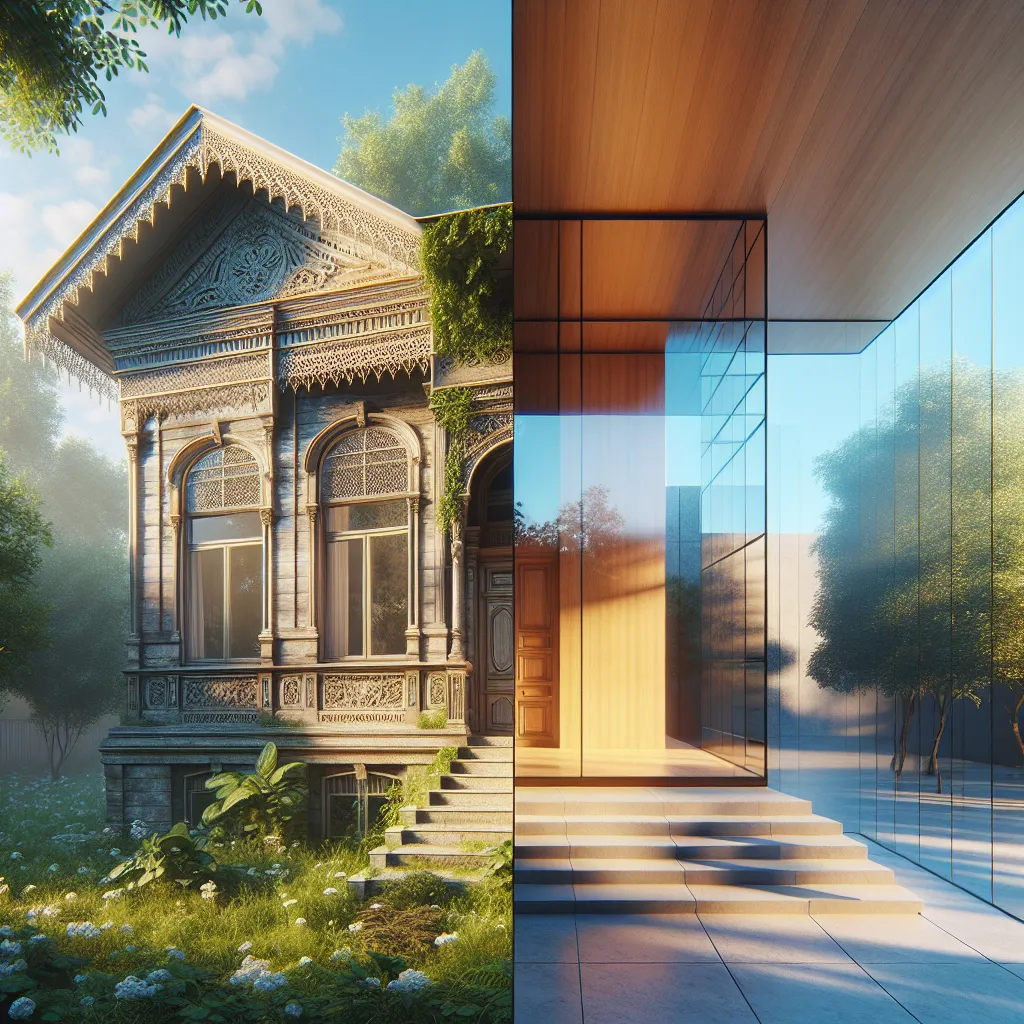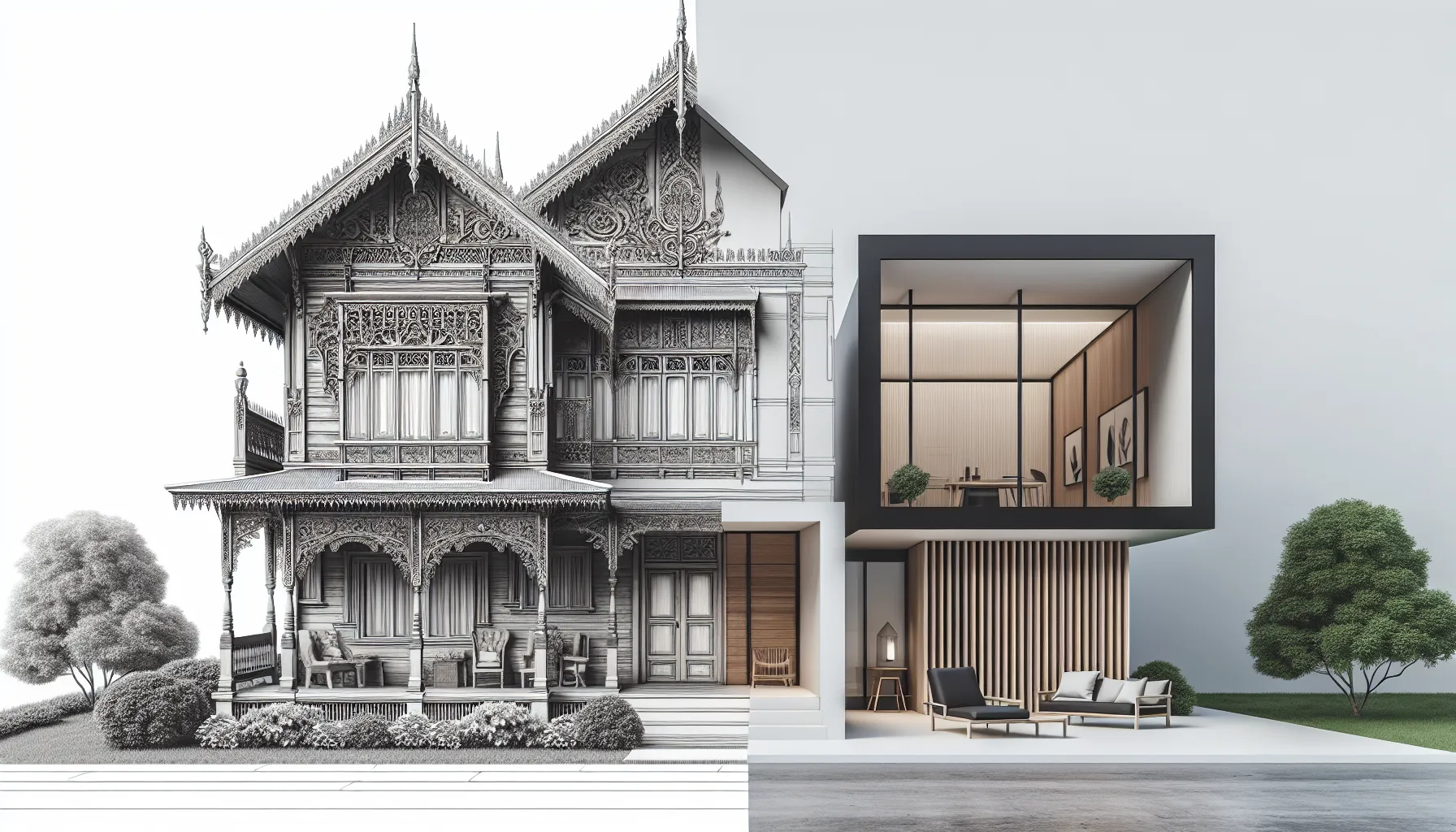When it comes to buying a home, the age-old question is whether to opt for a historic charmer or a modern marvel. Both choices have their unique advantages and challenges, but how do you decide which is right for you? The age of a house can significantly impact its charm, functionality, and cost. Whether you’re drawn to the intricate woodwork of yesteryears or the sleek lines of contemporary design, understanding the pros and cons of each can make your decision easier.

The Allure of Old Homes
Character and Charm
Older homes often boast unique architectural details that are hard to find in new constructions. From stained glass windows to ornate moldings, these features add personality and charm. But remember, charm comes with maintenance. Are you ready for the quirks that accompany a century-old foundation?
Location Perks
Older homes are typically located in established neighborhoods, often closer to city centers and amenities. This can mean shorter commutes and the convenience of nearby schools, shops, and parks.
Built to Last?
There’s a common belief that older homes were built to last. But is this true? While many have stood the test of time, it’s crucial to inspect the structural integrity and ensure it meets current safety standards.
The Drawbacks of Aging Homes
Outdated Systems
Older homes may need upgrades to electrical, plumbing, and heating systems. These updates can be costly and disruptive, so it’s essential to factor them into your budget.
Energy Efficiency
Newer homes typically feature energy-efficient technologies, from windows to insulation. Older homes might have drafty windows and less efficient heating systems, leading to higher utility bills.
The Appeal of New Homes
Modern Amenities
New homes come equipped with the latest amenities and technologies. Smart home systems, energy-efficient appliances, and open floor plans cater to modern lifestyles.
Customization Options
Buying new often means customization. Builders may offer choices in finishes, layouts, and upgrades, allowing you to tailor the home to your taste.
Lower Maintenance
With everything brand new, maintenance costs are typically lower in the first few years. New homes often come with warranties covering structural issues and major systems.
Challenges with New Constructions
Higher Price Tags
Modern homes, with their cutting-edge amenities, often come at a premium. It’s essential to balance the initial cost with long-term savings on utilities and maintenance.
Location Trade-Offs
New developments may be further from city centers, requiring longer commutes. Consider the trade-off between a modern home and its location.
Making the Decision
Assess Your Priorities
What matters most to you? Is it the character of an old home, the convenience of a new one, or perhaps a specific location? Your priorities will guide your decision.
Budget Considerations
Factor in the potential costs of renovations or the premium price of a new home. It’s crucial to align your budget with your lifestyle and future plans.
Use Technology to Your Advantage
Platforms like AnySqft can simplify the home-buying process by offering AI-driven insights into market trends and property values, helping you make an informed decision.
Conclusion
Deciding on the age of your future home involves weighing charm against convenience and character against cost. Both old and new homes have their unique benefits and challenges. By clearly understanding your needs and leveraging platforms like AnySqft, you can find a home that perfectly suits your lifestyle. After all, whether your dream home is a historic gem or a modern masterpiece, it should feel just right.
How old of a house should you buy?
When deciding the age of a house, consider the following:
Pros and Cons
- Older Homes:
- Character: Unique architectural details.
- Location: Often in more desirable neighborhoods.
-
Potential Issues: May require costly updates (plumbing, electrical).
-
Newer Homes:
- Modern Amenities: Energy-efficient systems and smart technology.
- Lower Maintenance: Less immediate repair work needed.
- Higher Cost: Typically more expensive than older homes.
Conclusion
Ultimately, choose a home that fits your lifestyle and budget. Use AnySqft to explore properties and find the perfect match for you! Discover your dream home today!
